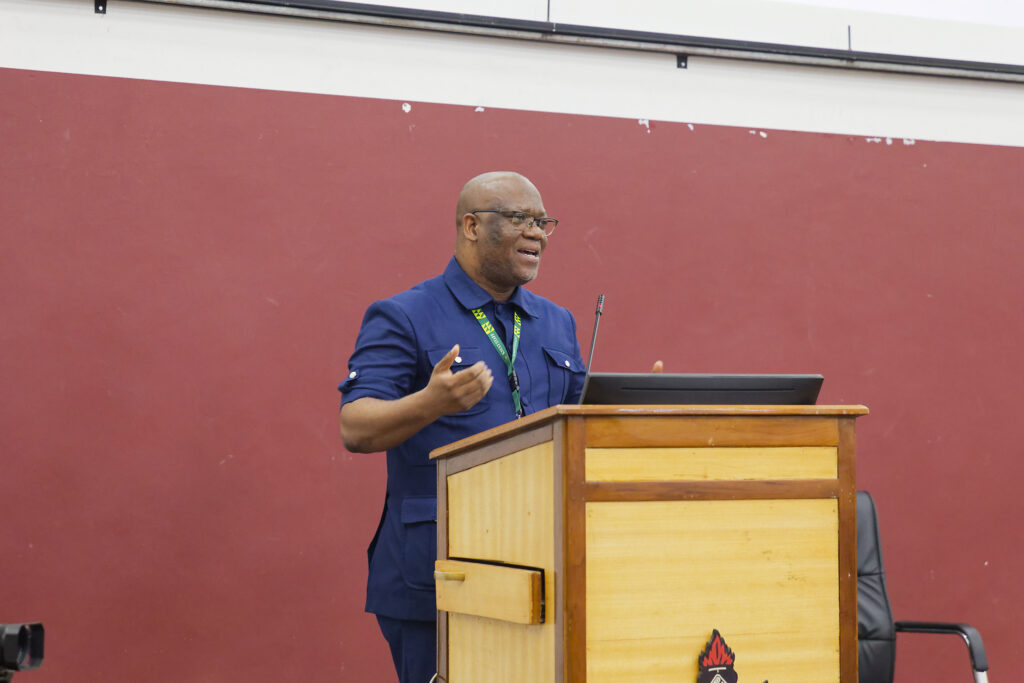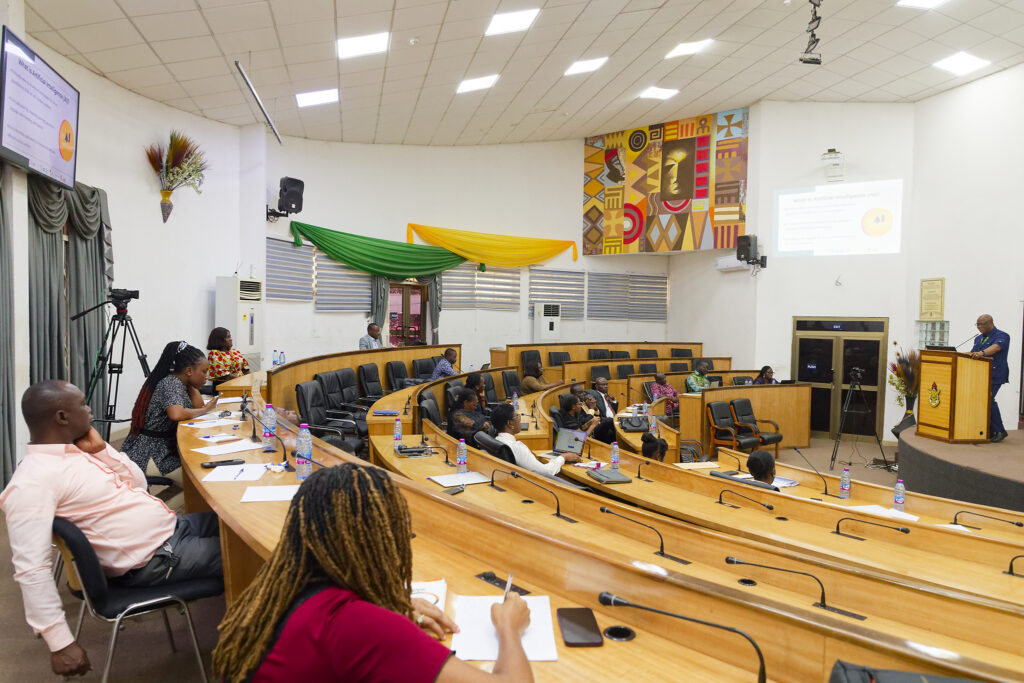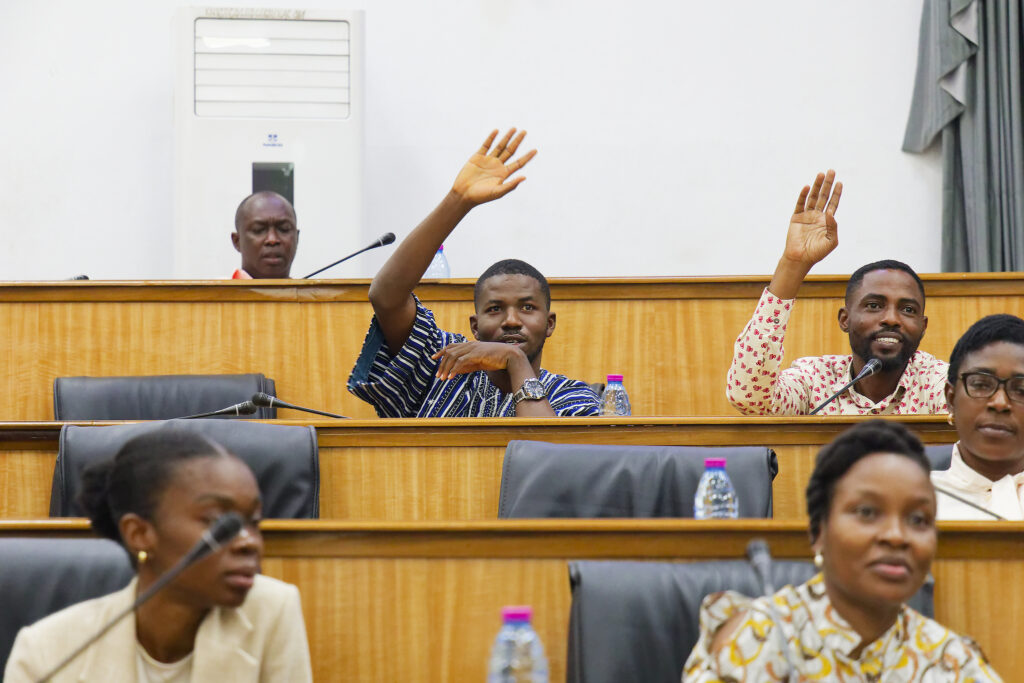On August 26th, 2024, the Faculty of Law at KNUST organised a seminar on AI and the Legal Academic, where participants discussed the impact of AI on teaching and learning and explored how AI tools and applications can be integrated into the legal system to enhance efficiency.

Prof. Jerry John Kponyo, the Principal Investigator and Scientific Director of the Responsible Artificial Lab (RAIL), spoke on Responsible AI & Inclusivity with reflections from RAIL. He said AI dominates the technological era, and numerous applications aim to improve outcomes and efficiency across various sectors.
He noted that Africa has seen a broad spectrum of digital transformation through AI, impacting sectors such as health, agriculture, transport, public services, and support for physically challenged individuals, highlighting that integrating AI into these sectors is crucial for the continent. He called for collaboration and education among these sectors.
He explained the Responsible AI Pipeline, which includes the envisioning, data, model and deployment stages. He said the effectiveness of AI largely depends on the quality of the data it uses, including how it is acquired, managed, and applied.
Prof. Kponyo mentioned that it is essential to consider fairness, accountability, and equity when employing AI to address societal problems, thereby avoiding the creation of class systems. He stated that inclusivity is vital, ensuring that AI solutions are developed to equally represent all individuals, including those who are differently abled, regardless of age, gender, or status, for accessibility and affordability of AI solutions.
He also noted that a quantitative approach is necessary to measure how responsible the AI solutions are by subjecting them to a comprehensive AI framework like FACETs developed by RAIL.

Addressing the key enablers of AI, he mentioned a robust infrastructure, quality data, skilled talent, appropriate regulations, responsible AI practices, inclusive design and deployment, and the development and implementation of national and regional AI strategies.
‘We need to strategically position Africa to capitalise on the benefits while mitigating the risks. There are significant opportunities for collaboration as we strive to make AI inclusive by working together to create Afrocentric datasets’, he said.

Discussions bothered integrating culture into the digital economy and how AI can be adapted to serve Africa’s unique context. The discussion also explored Africa’s place in this changing landscape, with the reassurance that AI won’t replace jobs if we focus on reskilling and building the digital capacity of the youth.